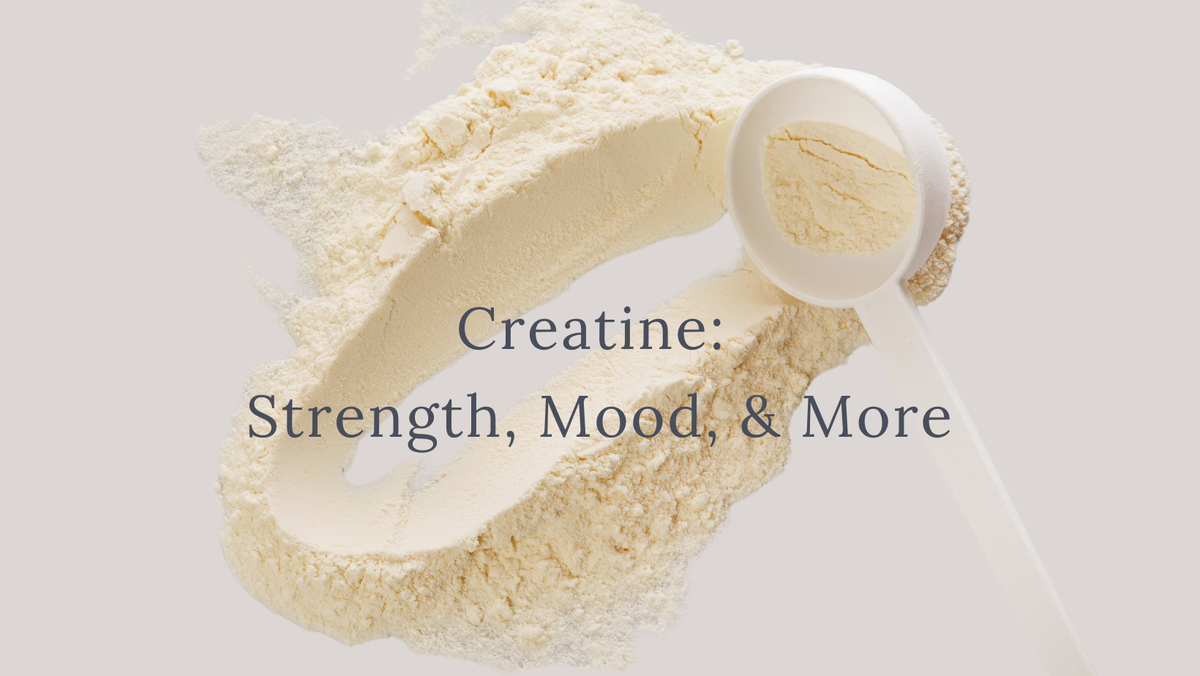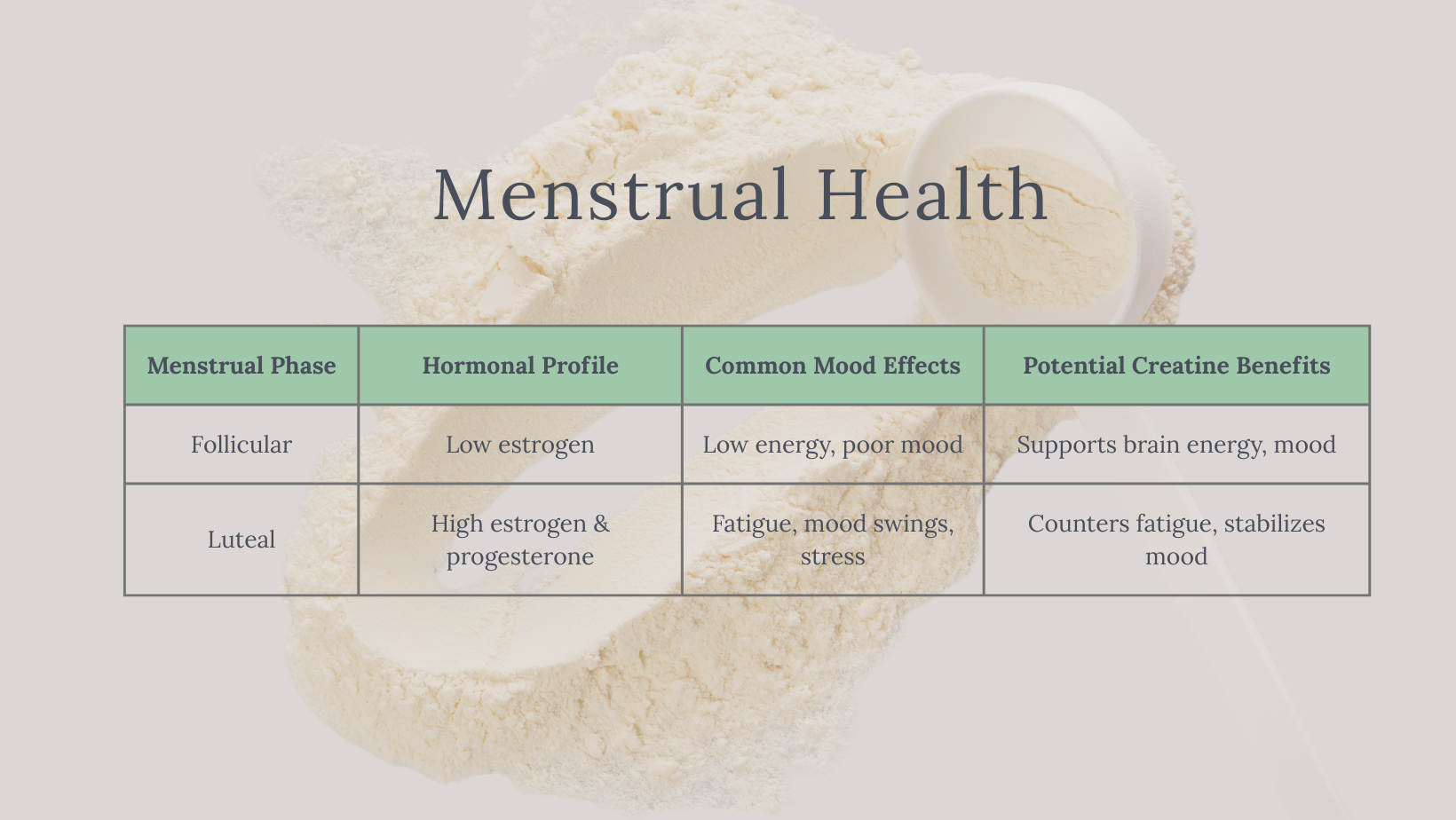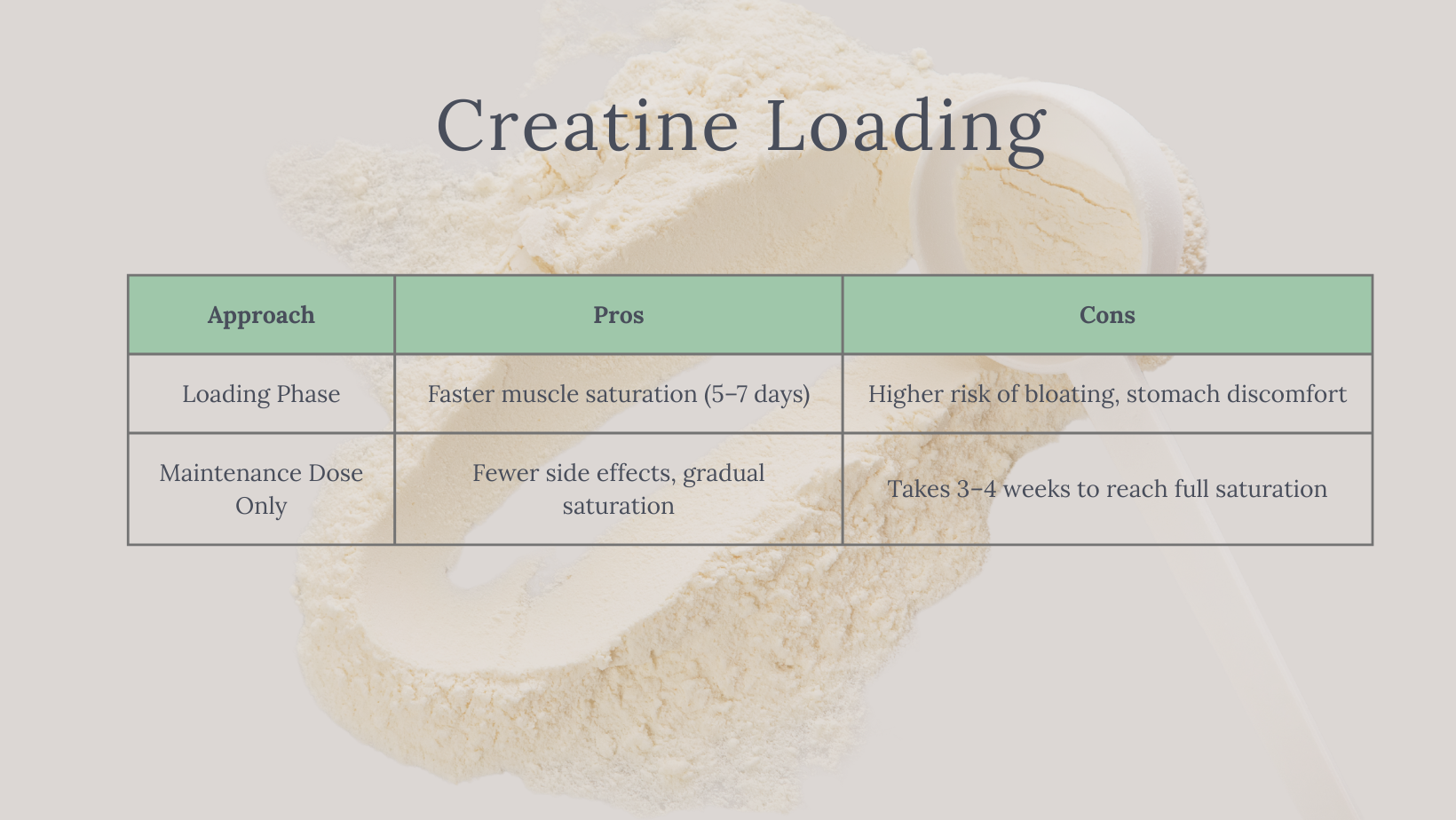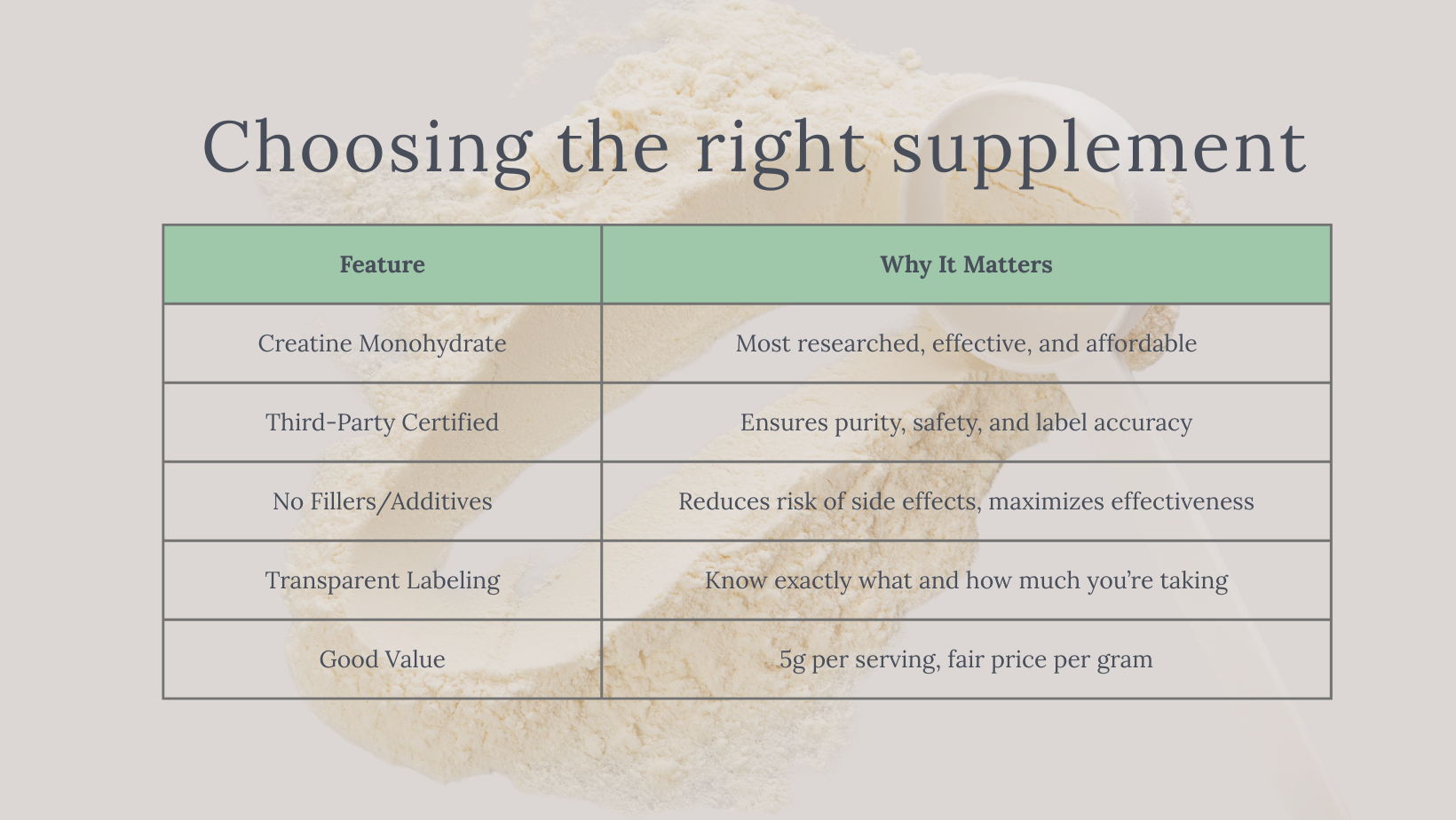Creatine for Women: The Surprising Benefits Beyond Muscle

As a toddler mom who needs more TLC at night than usual lately, I've noticed my brain isn't firing on all cylinders as it used to. Foggy mornings, seemingly endless need for caffeine, and the perpetual feeling that my brain is lagging a few steps behind have become my new normal.
If you share some of my interests, you may have been hearing chatter about creatine for women. Yes, it’s the same supplement typically associated with bodybuilders and heavy lifters. But this time, it's being talked about for more than just muscle gains—it's being linked to brain function, mood support, and even hormonal health. So, I decided to dig deeper to see what all the rave is about. (Especially because I was researching supplements for this blogpost anyway.) And I hope that what I found will be helpful for you.
What is Creatine?
Creatine is a naturally occurring compound stored in our muscles and brain, where it helps produce ATP – our body’s primary energy currency. While it’s widely known for its role in building muscle, research shows that creatine may also support brain function, mood, and even reproductive health.
Creatine is available in supplement form, with creatine monohydrate being the most researched and effective type. It’s affordable, widely available, and typically safe when taken at recommended doses (3-5g/day).
Benefits of Creatine for Women
Muscle Strength and Performance:
Creatine helps replenish ATP, boosting strength and power during workouts. This is particularly beneficial for women looking to maintain muscle mass as they age or during postpartum recovery.
Body Composition and Metabolism:
Women who supplement with creatine alongside resistance training often see greater muscle mass gains, which supports metabolism and bone health – both crucial during perimenopause and menopause.
Bone Health:
Emerging evidence suggests that creatine may positively impact bone density when combined with resistance training. This can be a game changer for aging women or those at risk for osteoporosis.
Brain and Mood Support:
Beyond muscles, creatine plays a role in brain energy metabolism. It may help reduce symptoms of depression, especially during periods of hormonal fluctuation like postpartum or perimenopause. Hormonal fluctuation throughout the menstrual cycle can significantly impact mood, which is where creatine may come into play.

Is Creatine Loading Necessary?
Creatine loading refers to taking a higher dose of creatine (20–25 grams per day, split into 4–5 doses) for 5–7 days, followed by a lower maintenance dose (3–5 grams per day). This speeds up the process of muscle saturation, potentially delivering strength and performance benefits more quickly.
However, loading is not necessary. A standard daily dose of 3–5 grams per day will also fully saturate muscles, but it will take about 3–4 weeks instead of one. After 30 days, people who load and those who take a steady maintenance dose reach similar muscle creatine levels and experience comparable performance gains.

Not all creatine supplements are created equal. Here’s what to look for:

Risks and Who Should Avoid Creatine
- While creatine is generally considered safe, women with kidney or liver disease, diabetes, or certain psychiatric conditions should consult their healthcare provider before supplementing.
- Common side effects include short-term water retention, bloating, and mild gastrointestinal discomfort, especially when taking high doses.
Summary: Is Creatine Right for You?
If you’re a woman looking to maintain muscle mass, stabilize mood during hormonal fluctuations, or support your brain’s energy demands, creatine could be a worthwhile addition to your routine.
But, like any supplement, it’s not a magic pill. I also shared my thoughts on food supplements in general a while back.
The benefits of creatine are most pronounced when combined with resistance training, a balanced diet, and adequate sleep. So, before you hit “add to cart,” consider talking to a trusted healthcare provider to see if creatine aligns with your unique health goals.
